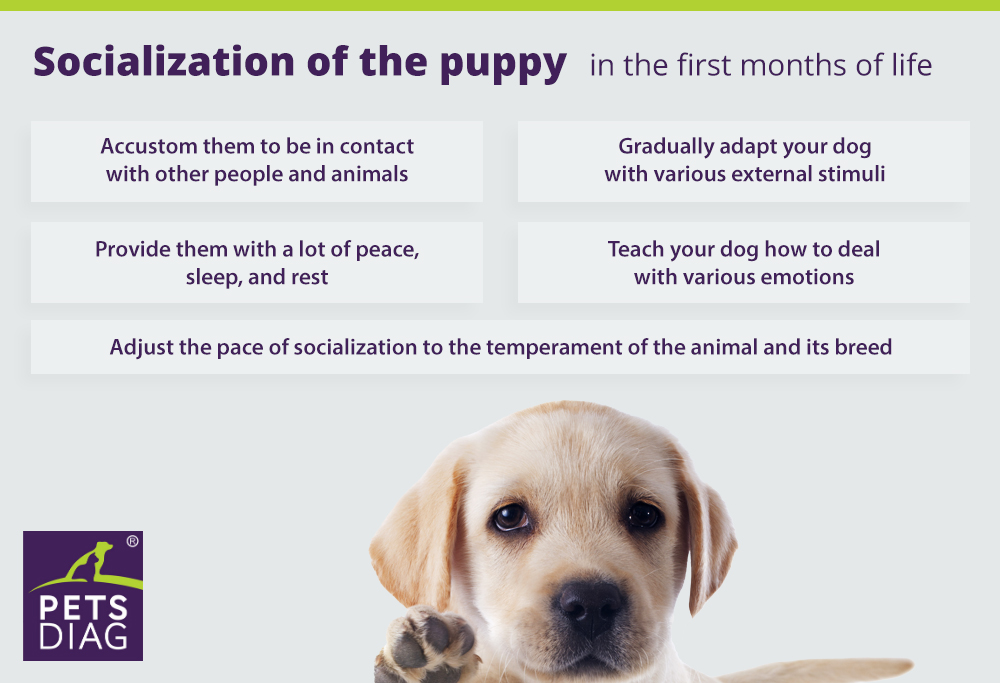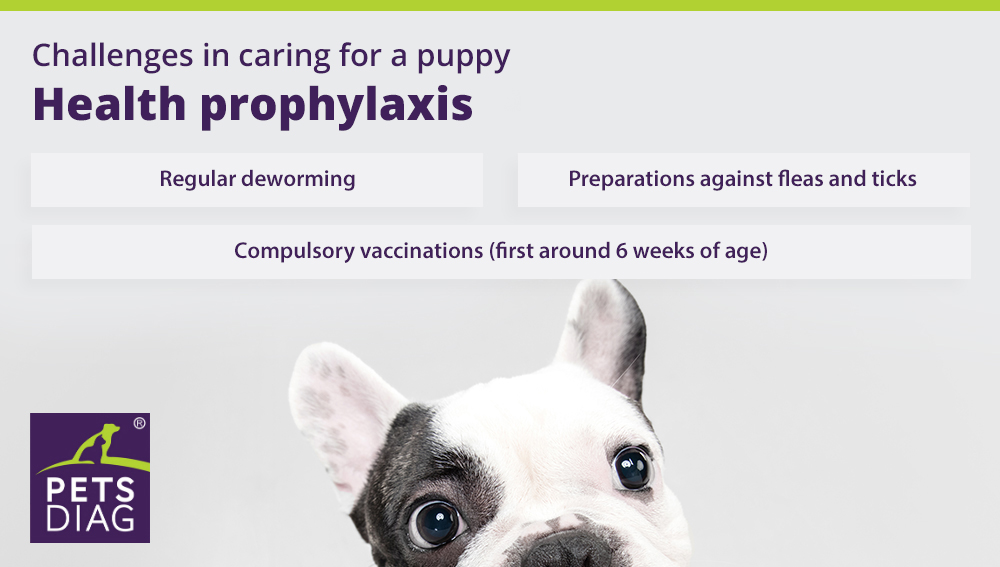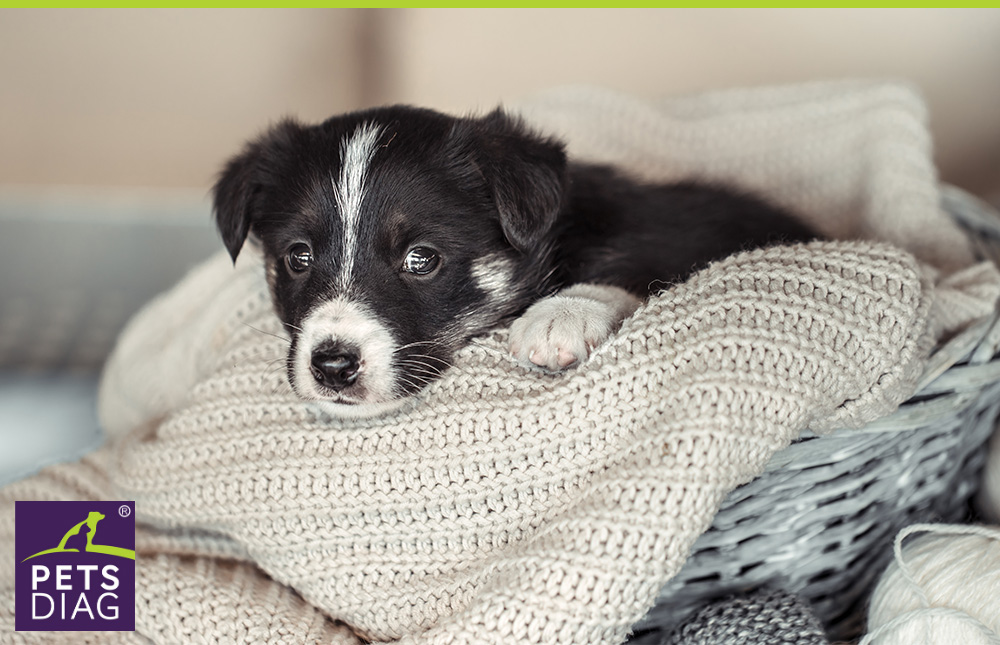On the one hand, the appearance of a puppy at home is a great joy, but also a big responsibility. After all, it is necessary to provide him or her with the right conditions, and also to get him or her used to a new home. How to properly care for a puppy
Getting the puppy used to new conditions
The first days in a new place are a difficult moment for dogs. How to take care of a puppy? So, let’s spend as much time as possible on it. Also, give them a lot of freedom to explore their surroundings at their own pace. Between 3 and 16 weeks of age, the dog should become familiar with as many people, animals, smells and sounds as possible. Different stimuli and getting used to them gradually will make the dog cope better in the following years of life. Improper socialization, on the other hand, may cause the dog to have more serious behavioral problems in the future. How to look after a puppy?If you already have another pet at home, make sure they meet on neutral ground. Here are some tips to help your dog adapt in his or her first few weeks in the new home.

Feeding the puppy
This is, of course, one of the basic responsibilities of the owner of any animal. In the beginning, he or she should be given the kind of food he or she is used to in breeding. Introducing a new food, on the other hand, must be carried out gradually by adding it to the already known food, and gradually increasing the proportions. How many times a day should a puppy be given food? Usually, it is assumed that up to the age of 14 weeks, the animal should receive 4-5 meals a day, then until the age of 6 months, 3-4, and then 3. The portion size is best to consult with your veterinarian.
You can find out more about this in the article: Animal Nutrition and Supplementation
Movement and playing with the dog
Give your puppy as much time as possible to build a strong, stable bond with him or her. How to take care of a puppy?Even though dogs love to play, remember not to force your puppy to move. Of course, you have to go for walks with him or her, but the dog itself should set the pace. Also check how the animal reacts to the effort. Perhaps at the beginning you will need to shorten the hiking paths a bit, especially if the dog is very tired after the walk. It is also recommended that playing with a puppy should not last longer than twenty minutes at a time. Learning to fetch should be done carefully. While fetching, the dog jumps up and runs quickly, then brakes sharply and runs again. This is a lot of burden for young, unstable joints.
You should also remember that the dog should not be overloaded. How to take care of a puppy? As it grows, the bones and joints are not yet accustomed to the efforts that the dog makes in adulthood, the overstrain may result in their suffering from a variety of health conditions later on. It all depends, of course, on the animal breed. In the case of a small dog, the period of growth lasts up to 7-8 months, medium breed – up to about a year, and large dogs even up to 1.5 years.
Caring for a puppy – learning how to clean
Don’t get angry with your pet if you happen to see a wet stain on the floor at the beginning. It takes time for your pet to learn where to take care of its needs. It’s best to ignore undesirable behavior but be prepared to shower your puppy with praise when he or she do it on his or her own outside. Learning to clean shouldn’t be stressful for them. Try to take your puppy outside quite often, e.g., every hour, and after meals and after a nap.
Vaccinations and deworming
Caring for puppies after birth also means keeping to the vaccination schedule.This is one of the most important things you need to do in the first few weeks of their life. Thanks to this, the animal will be well protected against potentially dangerous pathogens. Usually, the first vaccination is given when a puppy is six weeks old, and the next one when he or she is nine weeks old. It is a vaccination against distemper, parvovirus, infectious hepatitis, and kennel cough. The next dose should be given to the dog after another 3 weeks. Until then, it is worth limiting the puppy’s contact with other animals. When your dog is 12 months old, he or she should also receive a rabies dose. It is compulsory vaccination.
The first deworming of the animal is usually carried out while the dog is in the kennel, in the third week of life, and then every month until the dog is 6 months old. For an older dog, deworming is usually done two to four times a year.
It is also worth remembering to protect your dog from external parasites. There are various formulations on the market, including collars, sprays and drops. You can also purchase a special collar against fleas and ticks.

Hair care
The condition of the animal’s claws, ears or coat also affects his or her health and well-being. How to take care of a puppy? It all depends on the breed of the animal. Puppies that have long hair may need to be groomed even daily if they develop tangles, for others it may be enough to brush the hair once a week. You also have to be careful with the bathwater. It should not be done too often, but only when, for example, the dog gets dirty during a walk – not more than once every two weeks.
Caring for a puppy – challenges and fun
The period of puppyhood is a stage of many challenges, because you need to spend a lot of time to provide the dog with appropriate living conditions (food, sleep, immunization), but also time to build a bond with them and make them do well in the new environment. Puppies can bring a lot of joy to a new home, but you have to remember that caring for a puppy is also a big responsibility. During this period, it is worth showing a lot of patience with the animal, not forcing it to even play, so as not to cause stress and make it anxious.
An expression of concern for the health of the animal is also carrying out periodic examinations. One of them is the EHAA test, which can be ordered in our online store. Elemental hair analysis is a non-invasive test that will allow you to detect possible abnormalities and choose a diet to suit your pet’s needs.












